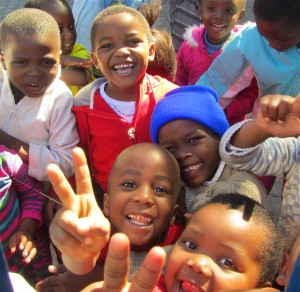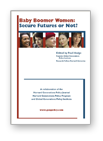JOHANNESBURG, SOUTH AFRICA, MAY 22, 2012: This is my first visit to South Africa (“SA”). For years, I have wanted to come here to see how this country is doing after the destruction of apartheid and to learn more about one of our world’s great leaders Nelson Mandela.
Since the demise of apartheid, black South Africans have become politically empowered through the governance of the African National Congress (ANC) which captured about 63% of the national vote in the last elections. Even with this political empowerment, the country faces many critical challenges from the cultural and socio-economic ravages of apartheid.
While SA is one of the BRICS and regarded as a emerging economic power house, about 25% of its working-aged population are still unemployed with the major burden of unemployment falling on the black populations. As I observed in Soweto, AIDS is still a great killer in the country and has decimated the middle-aged black population leaving the old and young to fend for themselves. The nation’s wealth is still concentrated with the white power structure that was in control during apartheid.
In my pilgrimage to Robben Island where Nelson Mandela was imprisoned for many years, I learned that, in his efforts to unite South Africans, Mandela proclaimed that his country only had one race, the human race. While many South Africans both black and white support Mandel’s great aspiration, to this day, a significant portion of white power structure leaders only pay lip service and basically do not agree with Mandela.
To illustrate this point, recently, the former president FW de Klerk was interviewed on CNN by Christiana Amanpour. De Klerk was the president of SA who convinced a majority of the white South Africans to give up power and end apartheid. For his efforts, he and Nelson Mandela received the joint Nobel Peace prize. In the CNN interview, de Klerk stated that while apartheid ended up being very unfair to black South Africans, in his opinion, the principle of separating ethnic groups in their own territories, which was the basis of apartheid originally, was not immoral. After the national uproar from his statement, de Klerk’s people now claim his words were taken out of context.
Be that as it may, regrettably, there is every indication that De Klerk’s “out of context” statement reflects the opinion of many white South Africans. As Elna Boesak has pointed out in her op-ed piece in the May 20th Johannesburg Sunday Independent: “De Klerk’s reflection on apartheid comes at a time South Africa can ill afford it.” “Many white South Africans still fail to be honest about the incredible damage apartheid had done, the advantages of privileges they, their children and grandchildren were enjoying and would continue to enjoy because of apartheid, and for the continued injustice and suffering their hard-heartedness was causing.”
Boesak goes on to postulate: “For most ordinary citizens the challenge is no longer to manage the stresses in the battle for political power. It is about dealing honestly with the demands regarding other fields of struggle: the struggle for economic empowerment; for the power education brings, opportunity delivers, and safety and security provides; and a dignified living that gives access to assistance and support.”
South Africa is on a great journey. If it is to survive as a nation and be a true home to all its citizens, a majority of the country’s white population must renounce its older leaders’ values and do what is necessary to achieve realistic transformation and reconciliation by first providing equality of economic opportunity, education, health care and public services regardless of race or gender.
“THERE IS ONLY ONE RACE IN SOUTH AFRICA AND THAT IS THE HUMAN RACE.”


